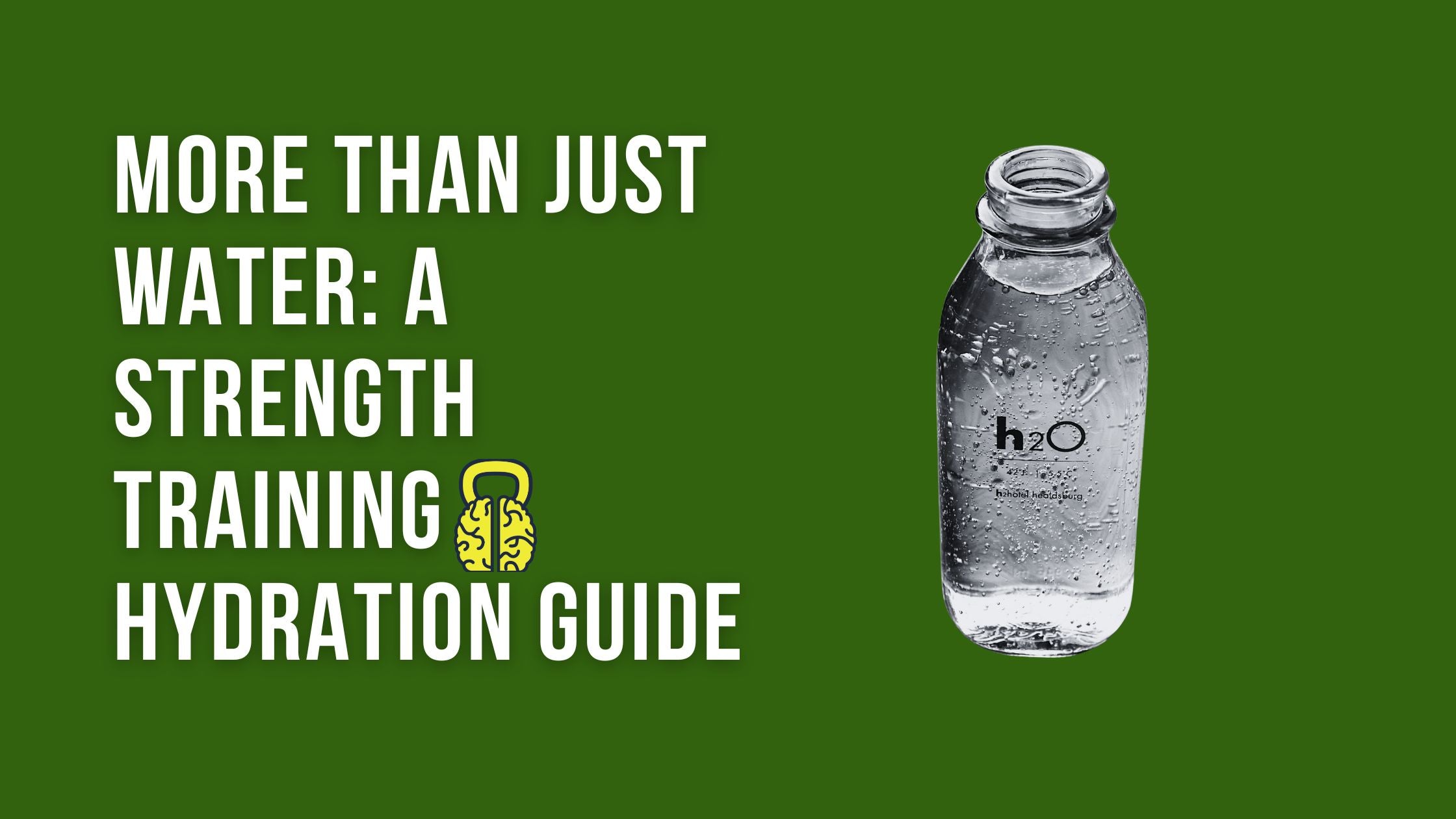ou wouldn't drive a high-performance car with an empty fuel tank, and you shouldn't step into the gym without proper hydration. For strength athletes, proper hydration for weightlifters is not a passive habit; it's a foundational pillar of performance, recovery, and injury prevention. Overlooking it is one of the quickest ways to sabotage your training and leave gains on the table.
Here is a practical strength training hydration guide to ensure you're always operating at your peak.
The Silent Performance Killer: Dehydration
Even a slight fluid deficit can have a dramatic impact on your lifting. Research shows that losing just 2% of your body weight from fluid can lead to:
- A significant drop in strength and power output.
- Reduced mental focus and impaired decision-making.
- Increased heart rate and perceived exertion, making your workout feel much harder.
- A higher risk of muscle cramps, headaches, and dizziness.
This direct link between dehydration and performance makes hydration a critical part of your pre-workout ritual.
Beyond Water: The Role of Electrolytes
While water is essential, for a heavy lifting session, it's often not enough. Your body sweats out key minerals known as electrolytes for athletes, primarily sodium and potassium. These electrolytes are crucial for:
- Muscle Contractions: They facilitate the electrical signals that tell your muscles to contract.
- Nerve Function: They are vital for nerve signaling throughout your body.
- Fluid Balance: They help your cells retain the water you drink, keeping you properly hydrated.
For intense, high-volume workouts (over 60 minutes) or training in a hot environment, adding an electrolyte drink is one of the best hydration strategies for lifters.
A 3-Phase Hydration Plan for Lifters
Hydration isn't just something you do during your workout; it's a 24/7 practice. Here's a simple, actionable plan:
- Pre-Training Hydration: Start hydrating hours before you lift. Aim to consume 16-20 ounces of water 2-3 hours before your session. This gives your body time to absorb the fluids without feeling bloated.
- Intra-Training Hydration: Sip water consistently throughout your workout. For every 15-20 minutes of training, take 4-8 ounces of fluid. If your session is intense or long, consider an electrolyte drink to replenish lost minerals.
- Post-Training Rehydration: Your goal is to replace all the fluid you lost during your workout. For every pound of body weight lost during your session, you should aim to drink 16-24 ounces of water. This is a crucial step in your hydration tips for training recovery.
How Much Water Do Strength Athletes Need?
A good rule of thumb is to start with a baseline of half your body weight in ounces per day. For example, a 180-pound lifter should aim for at least 90 ounces of water daily, plus the additional fluids needed to cover training.
Listen to your body, but don’t wait for thirst—that’s often a sign that you’re already dehydrated. By making hydration a priority, you'll feel stronger, recover faster, and smash your next training session with a full tank.
Need help with nutrition? Our Everyday Performance Nutrition program with Coach Jessica will help you get stronger, leaner, and feel better. CLICK HERE to learn more.




